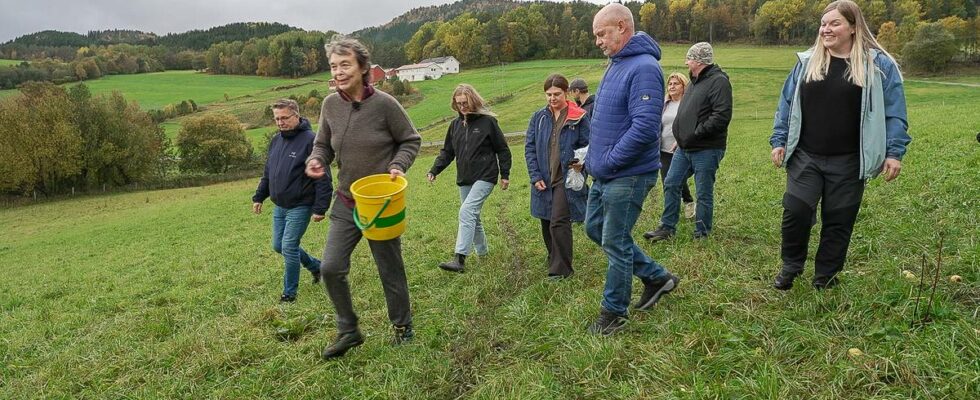In summary, Bønder is struggling to find replacements, and in Tingvoll municipality they have started training for Ukrainian refugees to meet this need. The course runs over five days and will qualify the refugees for replacement jobs. Over 40 percent of farmers in the country find it difficult to find replacements when needed. The municipality and Landbruk Nordvest are behind the course, while IMDi is responsible for the financing. Yvehen Tyshchenko is one of the course participants, and already has a job waiting. The course consists of both theory and practice, and is also useful for language learning. The summary is made by an AI service from OpenAI. The content is quality assured by news’s journalists before publication. Farmers who work even if they are sick, who struggle to take holidays and who cannot get help during lambing. There are many examples of a lack of avløysar for farmers, but in Tingvoll municipality in Nordmøre they are trying to do something about this problem. A course lasting five days plus a few days in practice will qualify Ukrainian refugees for replacement jobs. – It is about providing work for those who become residents. We must try to get their expertise from their home country to match the municipality’s needs, says Åse Bjerke in Tingvoll municipality. The aim is for the refugees to be able to work as replacement workers. Photo: Eirik Haukenes / news The need is where Peder Aasprang runs milk production in Tingvoll, and is positive that more people will receive training in the replacement profession. He himself is lucky and has a stable replacement now, but for many years he had to constantly train new ones to get a weekend off every now and then. It is also important to have someone you can trust if the farmer falls ill, he believes. – We farmers are actually on duty 24/7. And it is clear that we who are responsible for animals do not have all the weekends, days off and long holidays that others have, says Aasprang. Photo: Privat He says that the course is a good start, but that it takes time to get used to the operations and routines in the various barns. It is therefore important for the farmer to avoid constant replacements of replacements. – Language is also important so that people understand each other, says the farmer. According to sheep farmer Kristin Sørheim, farmers in the municipality absolutely need more replacements. – There are not that many people who run sheep here in Tingvoll, but there is a real lack of replacements for cattle, she says. Kristin Sørheim says that there is a need for more substitutes in Tingvoll. Photo: Eirik Haukenes / news And they are not alone. A report from the research institute Ruralis shows that over 40 per cent of farmers in the country find it difficult to find replacements when needed. Only 21 percent answered that they think it is easy. Already got a job But soon it will perhaps be easier to get replacements in Tingvoll. The municipality and Landbruk Nordvest are behind the course, while Imdi is responsible for the financing. Yvehen Tyshchenko is one of the course participants, and already has a job waiting. – I will work as a substitute in a dairy barn, he says. Yvehen Tyshchenko already has a replacement job waiting for him. Photo: Eirik Haukenes / news Neither he nor the other participants have had a job in agriculture in their home country. He himself has been a mechanic, but he still envisions using that knowledge in the job that replaces him. – I can use the knowledge from the mechanical profession to fix a fence or other things in the barn, he says. Important for the language The course the participants must go through consists of both theory and practice. Helga Bråten, who is unit manager for the refugee service in Tingvoll, says that it is useful for several reasons. – We see that it is a good way to learn. Both for academics, but also for the language, which is also an important factor. She hopes the course will strengthen the participants so that they can find work. – If it doesn’t turn out to be a replacement, it’s a nice experience to have with you. Helga Bråten says that the course is a good way to learn. Photo: Eirik Haukenes / news Published 15.10.2024, at 05.52
ttn-69
In Tingvoll municipality in Nordmøre, refugees from Ukraine are training to become replacements – news Møre og Romsdal – Local news, TV and radio

